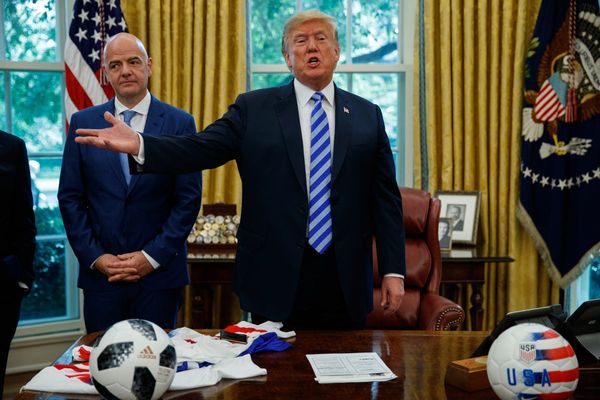
Russia has dismissed mounting international criticism over the arrest of leading opposition figure Alexey Navalny as interference, saying the case against him was an internal matter.
Leaders in several Western countries, many of whom have demanded answers from Russia over the alleged poisoning attack against Navalny in August, have called for the Kremlin critic’s immediate release.
Moscow’s latest moves against Navalny add to existing tensions between Russia and the West.
After Navalny was arrested on Sunday night, Lithuania, Latvia and Estonia urged the European Union to respond and hit Russia with sanctions.
On Monday, Navalny was jailed for 30 days pending further court hearings in a case relating to his suspended sentence handed down in 2014, over embezzlement charges. Navalny has said the charges against him are politically motivated.
Kremlin spokesman Dmitry Peskov on Tuesday said Moscow was aware of the reaction to Navalny’s arrest but “cannot and does not” plan to take the responses into account.
“This is about a Russian citizen not complying with Russian law,” Peskov told reporters on a conference call. “This is an absolutely domestic matter and we will not allow anyone to interfere in it.”
Peskov also shut down the notion that Russian President Vladimir Putin fears Navalny.
“Different statements about someone being afraid of someone else are absolutely nonsense,” he said.
After being sent to jail, Navalny called on his supporters to take to the streets and protest.
Peskov said those calls were alarming but added the Kremlin did not fear mass protests.
At least 13 protesters were arrested on Monday outside the police station on the outskirts of Moscow, where Navalny’s hastily arranged court hearing was held, and at least 55 demonstrators were rounded up by police in St Petersburg, Russia’s second-largest city, according to activists.
Navalny was arrested as soon as he landed at a Moscow airport, having arrived from Berlin, where he had spent five months recovering from an alleged nerve agent poisoning attack that he blames on the Kremlin – an accusation Russia denies.







